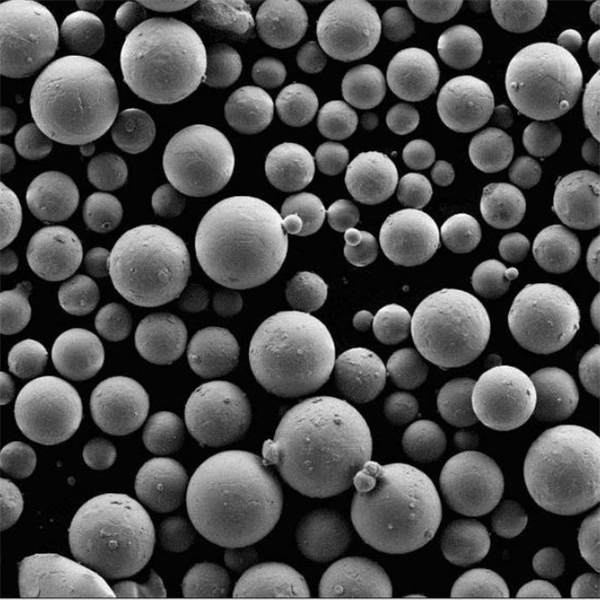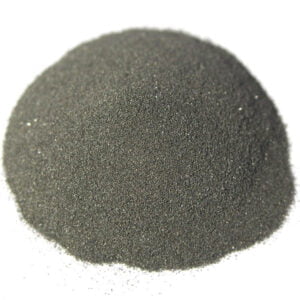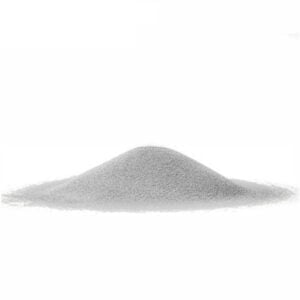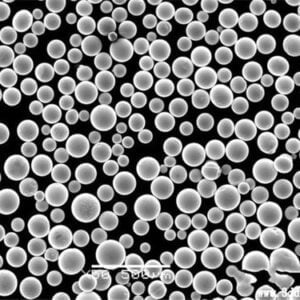FeCoNiCrTi Powder
FeCoNiCrTi powder is an alloy composed of iron (Fe), cobalt (Co), nickel (Ni), chromium (Cr), and titanium (Ti). It belongs to the class of high-entropy alloys (HEAs), which are a relatively new class of materials with unique properties. HEAs are characterized by their exceptional strength, hardness, and resistance to wear and corrosion. FeCoNiCrTi powder is typically produced through a powder metallurgy process, allowing for precise control over its composition and particle size.
Low MOQ
Provide low minimum order quantity to meet different needs.
OEM & ODM
Provide customized products and design services to meet unique customer needs.
Adequate Stock
Ensure fast order processing and provide reliable and efficient service.
Customer Satisfaction
Provide high quality products with customer satisfaction at the core.
share this product
Table of Contents
Overview of FeCoNiCrTi Powder
FeCoNiCrTi is a high-performance alloy exhibiting good mechanical properties and corrosion resistance at elevated temperatures. Iron and cobalt impart excellent high temperature strength. Nickel enhances ductility and toughness. Chromium provides outstanding oxidation and corrosion resistance.
Key characteristics of FeCoNiCrTi powder include:
- Excellent high temperature strength and creep resistance
- Good ductility, toughness and fabricability
- Outstanding oxidation and corrosion resistance
- High thermal stability and microstructural stability
- Available in various particle size distributions and morphologies
FeCoNiCrTi powder is suitable for high temperature structural parts, protective coatings, and other demanding applications requiring temperature capability, strength, and environmental resistance.
Composition of FeCoNiCrTi Powder
FeCoNiCrTi powder has the following nominal composition:
| Element | Composition |
|---|---|
| Iron (Fe) | Balance |
| Cobalt (Co) | 35-50% |
| Nickel (Ni) | 10-30% |
| Chromium (Cr) | 8-12% |
| Titanium (Ti) | 0.5-2% |
| Carbon (C) | 0.5% max |
| Silicon (Si) | 1% max |
| Manganese (Mn) | 1% max |

The levels of cobalt, nickel, chromium and titanium can be adjusted based on application requirements. Impurities like carbon, silicon and manganese are minimized.
Properties of FeCoNiCrTi Powder
FeCoNiCrTi powder possesses the following properties:
| Property | Value |
|---|---|
| Density | 8.0-8.5 g/cm3 |
| Melting Point | 1300-1400°C |
| Thermal Conductivity | 10-30 W/mK |
| Electrical Resistivity | 70-90 μΩ.cm |
| Young’s Modulus | 180-220 GPa |
| Poisson’s Ratio | 0.28-0.32 |
| Tensile Strength | 650-1100 MPa |
| Yield Strength | 450-750 MPa |
| Elongation | 10-30% |
| Hardness | 25-50 HRC |
The properties like tensile strength, creep resistance, and microstructural stability are maintained at temperatures exceeding 1000°C making it suitable for high temperature applications.
Production Method for FeCoNiCrTi Powder
Common production methods for FeCoNiCrTi powder include:
- Gas Atomization – High pressure inert gas jet used to disintegrate molten alloy stream into fine spherical powder particles providing good flow and packing density.
- Water Atomization – High velocity water jet impacts and disintegrates molten stream to produce fine irregular powders. Lower cost but higher oxygen pickup.
- Mechanical Alloying – Ball milling of elemental metal powders followed by sintering to synthesize the alloy powder.
Gas atomization provides the best control over powder characteristics. Particle size distribution can be tailored as per application requirements.
Applications of FeCoNiCrTi Powder
FeCoNiCrTi powder is used in high temperature applications like:
- Additive Manufacturing – Selective laser melting, electron beam melting to produce complex parts for extreme environments requiring high temperature strength.
- Thermal Spray Coatings – Wire arc spraying to deposit thick coatings providing wear and corrosion resistance at elevated temperatures.
- Brazing Filler – For joining high temperature alloys and ceramics needing oxidation resistance.
- Glass Processing – Powder metallurgy conveyor rolls with high temperature strength used in glass melting furnaces.
- Powder Metallurgy – High strength structural parts like turbine blades and vanes produced through press and sinter process.
- Welding Consumables – Used as filler material to provide excellent weld strength and corrosion resistance.
Specifications of FeCoNiCrTi Powder
FeCoNiCrTi powder is available in various size ranges, morphologies and grades:
- Particle Size: Ranging from 10-45 microns for AM methods, up to 150 microns for thermal spray processes.
- Morphology: Spherical, irregular and blended powder shapes. Spherical powder provides optimal flow and packing.
- Purity: From commercial to high purity grades based on impurity levels and application requirements.
- Surface Area: Low surface area preferred to minimize oxidation during handling and storage.
- Grades: Customized composition and powder characteristics based on intended application and processing method.
Global Suppliers of FeCoNiCrTi Powder
Some of the major global suppliers of FeCoNiCrTi powder include:
- Sandvik Osprey (UK)
- Hoganas (Sweden)
- Praxair (USA)
- CNPC Powder (China)
- Erasteel (France)
- Tekna (Canada)
- AMETEK (USA)
These companies produce various grades of FeCoNiCrTi powder using gas atomization, water atomization, and other techniques tailored for additive manufacturing, thermal spray, brazing and other high temperature applications.
Pricing of FeCoNiCrTi Powder
FeCoNiCrTi powder prices depend on factors like:
- Composition and purity levels
- Particle size distribution and morphology
- Production method
- Order quantity
- Supplier and location
| Grade | Price Range |
|---|---|
| Commercial | $50-100 per kg |
| High purity | $100-250 per kg |
| Ultrafine | $250-450 per kg |
| Special grade | $450-850 per kg |
Gas atomized, high purity and fine powder sizes command much higher pricing compared to simple commercial grades.
Storage and Handling of FeCoNiCrTi Powder
FeCoNiCrTi powder requires careful storage and handling:
- Should be stored in sealed containers under inert gas to prevent oxidation
- Avoid accumulation of fine powder to minimize risk of dust explosions
- Use appropriate PPE, ventilation and safety practices when handling
- Prevent contact between powder and incompatible materials
- Follow applicable safety data sheet from the supplier
Proper grounding, blanketing, and caution must be exercised when handling this reactive alloy powder.
Inspection and Testing of FeCoNiCrTi Powder
Key tests used for quality control of FeCoNiCrTi powder include:
- Chemical analysis using OES or XRF to ensure composition meets specifications
- Particle size distribution analysis as per ASTM B822 standard
- Morphology analysis through SEM imaging
- Powder flow rate measurement using Hall flowmeter as per ASTM B213
- Density measurement by helium pycnometry
- Impurity testing using ICP-MS
- Microstructural characterization by X-ray diffraction
Thorough testing and inspection ensures reliable and consistent powder quality meeting performance requirements.
Comparison Between FeCoNiCrTi and Inconel 718 Powder
FeCoNiCrTi and Inconel 718 are two high temperature alloy powders compared:
| Parameter | FeCoNiCrTi | Inconel 718 |
|---|---|---|
| Composition | Quinary alloy | Ni-Cr-Fe-Nb alloy |
| Cost | Higher | Lower |
| Strength | Higher at very high temperatures | Excellent up to 700°C |
| Oxidation resistance | Comparable | Comparable |
| Workability | Moderate | Excellent |
| Applications | Thermal spray, welding | Aerospace components, springs |
| Availability | Moderate | Readily available |
FeCoNiCrTi offers better high temperature strength whereas Inconel 718 has good fabricability and availability.
FeCoNiCrTi Powder FAQs
Q: How is FeCoNiCrTi powder produced?
A: FeCoNiCrTi powder is commercially produced using gas atomization, water atomization, and mechanical alloying followed by sintering. Gas atomization provides the best control of particle characteristics.
Q: What is FeCoNiCrTi powder used for?
A: FeCoNiCrTi finds use in high temperature applications like additive manufacturing, thermal spray coatings, brazing filler, powder metallurgy parts, welding consumables where temperature resistance, strength and environmental resistance is needed.
Q: What is the recommended powder size for thermal spraying?
A: For most thermal spray processes, a particle size range of 45-150 microns is preferred for FeCoNiCrTi powder to maximize deposition efficiency and coating properties.
Q: Does FeCoNiCrTi powder require special handling precautions?
A: Yes, it is recommended to carefully handle this reactive fine alloy powder using inert atmosphere, proper grounding, ventilation and PPE to control hazards.
Q: Where can I buy FeCoNiCrTi powder suitable for additive manufacturing?
A: Fine gas atomized FeCoNiCrTi powder meeting AM requirements can be purchased from leading manufacturers like Sandvik, Hoganas, Praxair, and Erasteel.
Get Latest Price
About Xmetto
Product Category
HOT SALE
CONTACT US
Any questions? Send us message now! We’ll serve your request with a whole team after receiving your message.








